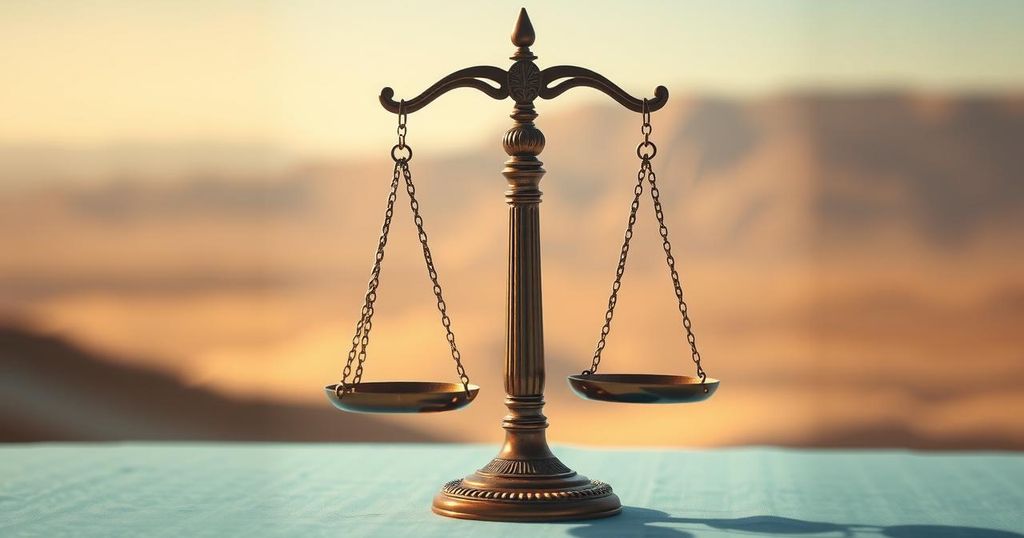UK Lawmakers Advocate for Stronger Measures Against Iran’s Human Rights Abuses

On February 12, prominent UK figures convened in the House of Lords to advocate for stronger action against Iran’s human rights violations. They urged the UK government to recognize the NCRI, proscribe the IRGC as a terrorist organization, and support democratic initiatives led by Maryam Rajavi. The session highlighted the urgent need for international intervention and solidarity with the Iranian people in their struggle for freedom and democracy.
On February 12, a significant session took place in the House of Lords, uniting renowned political, legal, and activist figures to address critical topics such as human rights, freedom, and democracy in Iran. Hosted by Mosa Zahed, the event showcased unwavering support for the National Council of Resistance of Iran (NCRI) and its leader Maryam Rajavi’s Ten-Point Plan aimed at establishing a democratic republic, as well as the call for the Islamic Revolutionary Guard Corps (IRGC) to be designated as a terrorist organization.
Mosa Zahed opened the dialogue by underscoring the urgent need for international intervention regarding the escalating executions in Iran, particularly citing the imminent execution of political prisoner Behrooz Ehsani. He noted, “The Iranian people have relentlessly fought for their rights. The UK must proscribe the IRGC as a terrorist organization and stand firmly with the Iranian people’s fight for democracy.”
Lord Henry Bellingham stressed the necessity of recognizing the NCRI’s objectives. He stated, “We must continue our efforts to stop executions inside Iran and push the government to proscribe the IRGC. This will support the Iranian people and contribute to global peace and stability.”
Farzaneh Najari, a chemical engineer and member of the Anglo-Iranian Professionals, shared a concerning perspective on the deteriorating conditions in Iran. She remarked, “Iran is a land of death. People die for speaking against the government, refusing the hijab, poor healthcare, and environmental disasters. The NCRI and Maryam Rajavi’s Ten-Point Plan are our people’s hope,” and urged the UK to act decisively to promote regime change.
Distinguished lawyer Malcolm Fowler voiced his disapproval of the UK government’s reluctance to designate the IRGC as a terrorist entity. He warned, “They see appeasement as a sign of weakness. It is irrational to let the IRGC avoid being proscribed. We must be tougher and make it plain that diplomatic and trade engagement with Iran will cease unless they behave as a proper nation should.”
During the event, Jim Shannon MP emphasized the urgency of action, stating, “At this very moment, the lives of NCRI supporters hang in the balance. The regime thrives on oppression and terror, but the people of Iran are rising. Their fight for freedom and democracy is unyielding, and we must support them.” He called Maryam Rajavi’s Ten-Point Plan a roadmap for a just future, urging recognition of the NCRI as the legitimate opposition.
Human rights activist Neda Zebeti drew connections between the current struggle and Iran’s historical resistance. She observed, “Different dictators, different ideologies, yet the same oppression. The Iranian people’s demands have been consistent: the removal of the supreme leader, respect for fundamental freedoms, and an end to terrorism.” She condemned the UK for not designating the IRGC despite acknowledging its proxies as terrorist organizations, calling it both illogical and immoral.
Conservative Councillor Robert Ward expressed optimism regarding the Iranian regime’s current vulnerability. He noted, “The regime has never been weaker. The Syrian ally is gone, and proxies are failing. The Iranian people have organized and their resolve is strong. This could be the year the regime falls.” He urged the UK to engage with Maryam Rajavi and recognize the NCRI.
Sheida Uraki shared her personal story of loss due to the regime’s brutality, recounting, “More than 1,000 people have been executed since the new president took power. We condemn this tyranny and urge the UK to take immediate steps to stop executions and support resistance forces.”
Siavosh Rajabi reiterated the need for decisive international action, affirming, “The NCRI is not just an opposition, but a beacon of hope. Maryam Rajavi’s Ten-Point Plan has garnered global support. The UK must recognize the NCRI, engage with its leadership, proscribe the IRGC, and support global efforts to end executions.” He insisted a free Iran would contribute to global stability and peace, stating, “This is our moment to be on the right side of history.”
The event concluded with a powerful assertion that immediate action is imperative. Lawmakers, activists, and advocates collectively urged the UK government to relinquish appeasement, stand with the Iranian people, and implement concrete measures towards a free, democratic, and secular Iran.
The House of Lords session underscored the urgent need for the UK government to abandon appeasement towards Iran and support the resolute fight of the Iranian people for democracy and human rights. Prominent figures called for the proscription of the IRGC and recognition of the NCRI as the legitimate opposition. The overarching message emphasized that the time for decisive action is now to foster a more stable and peaceful future for Iran and beyond.
Original Source: www.ncr-iran.org







